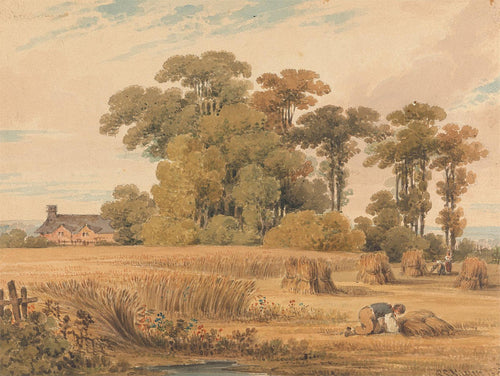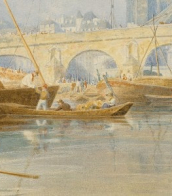paul sandby munn (1773 - 1845)

Paul Sandby Munn was an esteemed English watercolor painter, celebrated for his atmospheric landscapes of England and Wales, as well as for his pioneering efforts in early lithography. Born in Greenwich, Munn was influenced and initially tutored by his godfather, the renowned Paul Sandby, from whom he also inherited his name. Throughout his career, Munn exhibited a delicate and careful execution in his artworks, embodying the early watercolor style that emphasized pale and soft color palettes.
Paul Sandby Munn’s artistic contributions were frequently showcased at the Royal Academy from 1799, and he was an active member of the Society of Painters in Water Colours from its early days. His works often stemmed from sketches made during tours with his contemporary John Sell Cotman, capturing the essence of the British landscape which was a source of national pride during his time. His notable works include scenes such as the "Shanklin Chine, Isle of Wight" and are preserved in several prominent collections including the British Museum and the Tate.
In addition to his art, Paul Sandby Munn had a keen interest in music, which later in life became his primary focus. His works can still be seen in institutions like The Courtauld Gallery and the V&A, offering a glimpse into the rich history of British watercolor painting and its evolution during the 19th century.
For those interested in exploring Munn's works further, pieces like "Old Water Mill" from 1807, held by The Metropolitan Museum of Art, exemplify his style and contributions to the polyautography technique, a form of early lithography.
If you are keen to explore further or wish to stay updated on new auctions and sales events featuring the exceptional works of Paul Sandby Munn, we invite you to sign up for our exclusive updates. This subscription will ensure you receive timely information tailored to enthusiasts and collectors of historic art and antiques.


